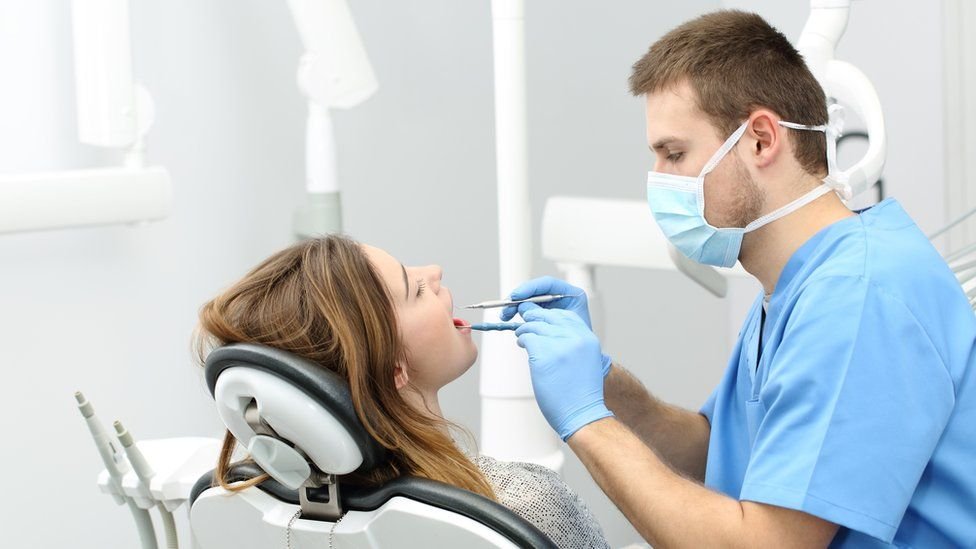All of the advice presented here is meant to be general health. However, they aren’t appropriate for everyone in every situation, and they can’t take the place of an annual physical exam by a medical professional.
[powerkit_toc title=”Table of Contents” depth=”2″ min_count=”4″ min_characters=”1000″ btn_hide=”true” default_state=”expanded”]
This Advice is for Everyone at Every Stage of their Life
- Newborn To 10 Years
- Vaccines Save Lives
- Adolescents – 11-19
- Adult Women
- Adult Men
- Newborn To 10 Years

In the first year of life, babies get the most medical attention of any age group, with doctors’ appointments nearly every two months.
0-6 Months
Bonding with parents and testing for issues like jaundice, blood disorders, congenital heart defects, and vision, hearing, height and reflexes should take place during the first few days of a baby’s life after birth. As soon as a baby’s first teeth begin to erupt, parents should start brushing them twice a day (around six months)
A pediatrician will listen to vital organs, palpate and tap different parts of the body of an infant to check for signs of illness, measure height and weight, and check vision, hearing, and reflexes. These well-child visits are recommended for infants at one month, two months, four months, six months and nine months, and continue annually until the age of 10. In addition to vaccinations, the baby will also be vaccinated.
Nine Months
Centers for Disease Control and Prevention put forward that caregivers be asked questions about language, movement, thinking, behavior, and emotions during the well-child visit.
Nutrition

Parents should discuss the importance of establishing a healthy diet and eating habits for their child during this well-child exam. Starting or increasing their baby’s solid food intake may also be part of this process for parents.
Dental

Six months following the birth of their first tooth, children should have their first dental examination, according to the American Dental Association (ADA). Visits to the dentist include an examination of the baby’s teeth to identify any decay or cavities, a cleaning of the teeth and a lesson in oral hygiene, and a discussion of the use of pacifiers or thumb-sucking.
18 Months
If the results are positive, the American Academy of Pediatrics recommends repeating the screening at two years old and beyond.
2-10 Years
Maintain regular dental and well-child checkups for your healthy children.
Two Months
Looks at the parent’s faces and pays attention to their expressions.
Four Months
Simultaneously mimics and responds to human emotions.
Six Months
He enjoys looking in the mirror and putting things in his mouth.
Nine Months
Small items can be picked up between the thumb and forefinger of one’s thumb and finger.
12 Months
Puts out arm or leg to help to dress, follows easy directions.
18 Months
When a parent is nearby, the child can identify a specific body part when asked.
Two Years
When he sees other kids, he gets elevated and starts sorting shapes and colors.
Three Years
Self-dresses and solves three- or four-piece puzzles.
Four Years
Anticipate what will happen next in a book based on what is real and what is made up.
Five Years
Aspirational, able to draw a six-part human figure
Adolescents – 11-19

Good news for this age group: According to Dr Deborah Gilboa of the Squirrel Hill Health Center, a well-known parenting and youth development expert, it’s the healthiest decade of life, so it’s critical to emphasize preventive medicine with teenagers. It’s important to learn how to keep your prized possessions in peak condition as long as possible, she says.
Things to take Care of in the Teen years:
- Obesity
- problems with one’s psyche
- Use of technology in an excessive manner
- Abuse of drugs
In the second decade of life, bad luck and bad judgment kill most people, she says. Unfortunately, bad luck cannot be avoided, even if we try our best to lessen its impact through wise decisions. We can, however, assist in cases of poor judgment. How can I best assist? “Discuss sensitive topics with them, even if they don’t want to.” It’s happening over and over again, Gilboa explains.

At the risk of a lot of scowling. Encourage adolescents to develop good decision-making skills as they become more independent, says the mother of four boys ranging in age from 11 to 18. Our approach should focus on “teaching them how to fish” rather than simply “fishing for” them, Gilboa says.
Developing the Capability to Solve their own Problems;
Having the ability to seek out resources and ask for and receive assistance when necessary. For the simple reason that adolescents who are grappling with these issues are more likely to take their own lives, according to Gilboa.
Furthermore:
The American Academy of Pediatrics advises parents to take their children, ages 12 to 18, to their pediatrician once a year for a checkup. They should receive any necessary booster shots or additional vaccinations. The HPV vaccine, which shielded both young men and women against the human papillomavirus, which can cause cancer and genital warts, is one such vaccine that is made available for the first time during adolescence.
In addition to regular vision and dental exams and cleanings, adolescents should also receive these services on a biannual basis. For example, some people may need to see an orthodontist to have their bite or tooth spacing adjusted, in which case they will have to wear braces. Third molars, or “wisdom teeth,” may also need to be removed at this time.
Women
A Women’s Health Physician Is the Best Gift You Can Give Yourself. As their reproductive cycles change, so do the needs and requirements for women’s preventive health care. It can be a confusing maze. According to Dr Beth Prairie, an OB/GYN at Allegheny Health Network’s West Penn Hospital. Women should see a women’s health physician they can trust and who is familiar with the Women’s Preventive Services Initiative’s health care.

Guidelines on a regular basis if they want to maintain their overall health and wellness. An alliance of national health professional organizations, including the American College of Obstetrics and Gynaecology and patient advocates with expertise in women’s health, the WPSI is responsible for developing and updating recommendations for women’s preventive healthcare.
Tips for Women of All Ages on Staying Healthy
- When it comes to female health, Prairie has some recommendations that apply to women of all ages.
- Preventive care and regular screenings should always be a priority.
- Eat a well-balanced diet.
- Take a good night’s rest.
- Get enough calcium from your food.
- Obesity control and maintenance
- Every day, get up and move your body.
- At least one time a year, see a doctor or other health care professional.
- Spend quality time with those who care about you, who encourage you, and who can also make you laugh at yourself
Recommended inhibitory Health Care for Women Age 50-64
For example, we are screening for smoking, high blood pressure and depression, as well as obesity and urinary incontinence.
- Make sure that vaccinations are updated.
- Infectious diseases, like Hepatitis C and HIV, can be tested for.
- Breast cancer screening and BRCA testing risk assessment
- Pap smears should continue to be used to screen for cervical cancer.
- Colorectal cancer screening should begin now.
- Osteoporosis screening and fall prevention education should begin at the age of 65 for women.
- Women’s Preventive Services Initiative
On the Rise
In the United States, the number of reports of sexually transmitted infections is on the rise. Without taking into account the prevalence of HPV, chlamydia is the most common STD among younger women. In addition.

STIs are becoming more prevalent among the elderly. Prairie says that “practising safer sex, which starts with talking to your partner, is crucially important when it comes to both women’s and men’s health.”
Clearing up the Confusion
Pap smears check for cervical cancer, but many women aren’t sure how often they should have them done, according to Prairie. According to the author, when it comes to annual pelvic exams, not all are pap smears, and most women don’t need one every year. Instead, she advises consulting with your doctor about the frequency of testing that is appropriate for you.
MEN
- Consultation with a physician is the first step in preventing any problems.
- Men between the ages of 18 & 39 should have the following things checked out at their yearly checkup:
- Weight, exercise, and nutrition will be discussed.
- Self-examination and male hygiene instruction
- Drug and alcohol counseling, including the use of illicit drugs such as anabolic steroids and performance-enhancing drugs such as caffeine
Discussions on sports safety
- A retrospective examination of genetic and environmental risk factors
- Inquiry into PTSD and suicide as well as mental health evaluation
- Exam/self-examination for testicular cancer
- The lipid profile and hypertension screenings
- STI screening, sexual activity, and contraception
- Insights into the disease of urology
- An examination for skin cancer
At 40, men are more likely to require screenings and medical treatment. This is when men may need to begin screenings for prostate cancer much earlier than the general population, and many men don’t know that,” Dr Kathleen Hwang says. According to the expert, people with a first-degree relative who had prostate cancer are at increased risk and should be screened sooner rather than later.
Men in the 40-49 age group need to get a complete skin cancer exam and screenings for colorectal cancer and other blood work, if necessary.
Avoid Chronic Illness
There are several methods in which men can avoid chronic illness and extend their lifespans. As expected, they begin with a trip to the doctor once a year. You see a pediatrician every year when you’re a kid. Then you turn 18, and the next count, you see one, you’re in your 40s.

“In other words, “nobody has been evaluated for like two decades,” she says. Instead, men are missing out on an opportunity to catch bad habits in the making and change them before they become more problematic issues by not having someone keep track of their weight, blood pressure, waist circumference, and BMI.
9 Simple Tips for Living Healthy
There is no one-size-fits-all approach to preventive medicine. But, on the other hand, a colorectal exam is far more involved than having your blood pressure checked once a year, as you would expect. Dr Hwang discusses some simple daily habits that men can adopt to improve their health and maintain it. It is easy for Hwang to say, but he admits that making long-term lifestyle changes is a challenge.
- “However, they have such a long-term health benefit.”
- Use sunscreen and wear a hat to protect your skin.
- Smoking is bad for your health.
- Participate in regular physical activity.
- Weight loss should be a top priority if you’re obese.
- Engage in meaningful activities.
- Wear a cup to guard against injury to your testicles. Find the Best Dentist in Dubai for your appointment.
- Get a checkup every year.
- Seek assistance.



